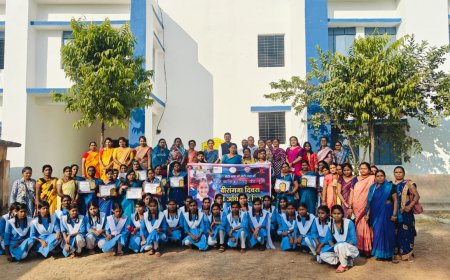Apara Ekadashi Vrat Katha: A Path to Salvation and Prosperity

Apara Ekadashi is one of the most sacred days observed by Hindus to seek forgiveness for past sins and attain divine blessings. Falling during the Krishna Paksha (waning phase of the moon) of the month of Jyeshtha (May-June), this Ekadashi holds immense spiritual significance. Observing a fast on this day and listening to or reading the Apara Ekadashi Vrat Katha is believed to bestow peace, prosperity, and liberation from the cycle of birth and death.
Significance of Apara Ekadashi
The word “Apara” means boundless or limitless, and this Ekadashi is aptly named, as it offers countless spiritual and material benefits to those who observe it with devotion. Lord Vishnu, the preserver of the universe, is worshipped on this day. It is believed that observing the Apara Ekadashi Vrat:
-
Forgives sins committed in this life and previous lives.
-
Leads to success in business, career, and personal endeavors.
-
Helps attain Moksha (liberation).
-
Offers relief from ancestral doshas and karmic burdens.
This vrat is particularly powerful for those who may have committed sins knowingly or unknowingly and seek redemption through divine grace.
Apara Ekadashi Vrat Katha (Legend)
According to ancient scriptures, the Apara Ekadashi Vrat Katha is narrated by Lord Krishna to King Yudhishthira in the Brahmanda Purana. The story emphasizes the power of faith and the transformative nature of the Ekadashi fast.
The Story of Mahidhwaj
Once there was a righteous king named Mahidhwaj, who ruled justly and was loved by his people. However, he had a younger brother named Vajradhwaj, who was envious of his popularity and virtue. In a fit of jealousy, Vajradhwaj murdered Mahidhwaj and buried his body under a peepal tree in the forest.
After his untimely death, King Mahidhwaj’s spirit became a restless ghost due to the violence of his death and the unfulfilled duties of life. He haunted the area, causing fear among the locals.
One day, a sage named Dhaumya was passing through the forest. Using his spiritual insight, he sensed the presence of the tormented spirit. The sage, moved by compassion, performed rituals and fasted on Apara Ekadashi to free the soul of the deceased king. By the divine power of the vrat, King Mahidhwaj’s spirit attained salvation and peace.
This katha underscores the importance of Apara Ekadashi and the power it holds in cleansing the soul and helping one move towards liberation.
Vrat Vidhi (Rituals for Observing Apara Ekadashi)
Observing the Apara Ekadashi Vrat is a disciplined spiritual practice that includes various rituals:
List of Key Rituals
-
Preparation (One Day Before - Dashami)
-
Eat satvik food before sunset.
-
Avoid onion, garlic, and non-vegetarian food.
-
-
On the Day of Ekadashi
-
Wake up early during Brahma Muhurat (around 4–5 AM).
-
Take a bath and wear clean clothes.
-
Set up an altar with a picture or idol of Lord Vishnu.
-
Light a ghee lamp and offer tulsi leaves, flowers, incense, and fruits.
-
Chant Vishnu Sahasranama and Ekadashi Vrat Katha.
-
Maintain a fast. One may observe:
-
Nirjala Vrat (without food and water)
-
Phalahar Vrat (only fruits and milk)
-
Partial Fast (one meal without grains and salt)
-
-
-
On Dwadashi (Next Day)
-
Break the fast after sunrise and after offering food and dakshina to a Brahmin.
-
Feed the poor and cows, and donate to the needy.
-
Benefits of Apara Ekadashi: A Table Overview
| Benefit | Explanation |
|---|---|
| Forgiveness of Sins | Helps eliminate the effects of past sins and karmic debts. |
| Spiritual Growth | Enhances concentration, self-discipline, and spiritual awareness. |
| Peace and Prosperity | Attracts blessings of wealth, happiness, and familial harmony. |
| Salvation (Moksha) | Leads the soul towards liberation from the cycle of birth and rebirth. |
| Freedom from Ghostly Torment | Ideal for helping souls attain peace and is considered effective in Pitru Dosha |
| Improved Mental and Physical Health | Fasting detoxifies the body and improves focus and energy levels. |
Guidelines for a Successful Vrat
To ensure the spiritual benefits of the Apara Ekadashi Vrat, follow these essential guidelines:
Do’s:
-
Maintain celibacy and mental purity.
-
Read or listen to the Apara Ekadashi Vrat Katha with full devotion.
-
Spend time in meditation, japa (chanting), and bhajan (devotional singing).
-
Donate clothes, food, and essentials to the poor.
Don’ts:
-
Avoid grains, lentils, and certain spices during the fast.
-
Do not lie, argue, or speak harshly.
-
Avoid consumption of alcohol, tobacco, and other tamasic substances.
Astrological and Spiritual Importance
From an astrological perspective, Apara Ekadashi is favorable for pacifying malefic planetary influences, especially those of Saturn and Rahu. Devotees with Kaal Sarp Dosha or Pitru Dosha in their horoscopes often observe this fast to receive relief. Spiritually, it is a powerful time to align with dharma (righteousness) and purify the soul.
Conclusion
Apara Ekadashi is a golden opportunity for spiritual transformation. The fast, combined with the recitation of the Apara Ekadashi Vrat Katha, offers an effective route to cleanse the heart, repent for past wrongs, and seek the divine blessings of Lord Vishnu. Whether you are a devout follower or someone exploring spiritual disciplines, this Ekadashi can be a gateway to peace, health, prosperity, and ultimately, liberation.
Take a vow this Apara Ekadashi to immerse yourself in devotion, self-discipline, and prayer—and witness the positive change it brings to your life.



























